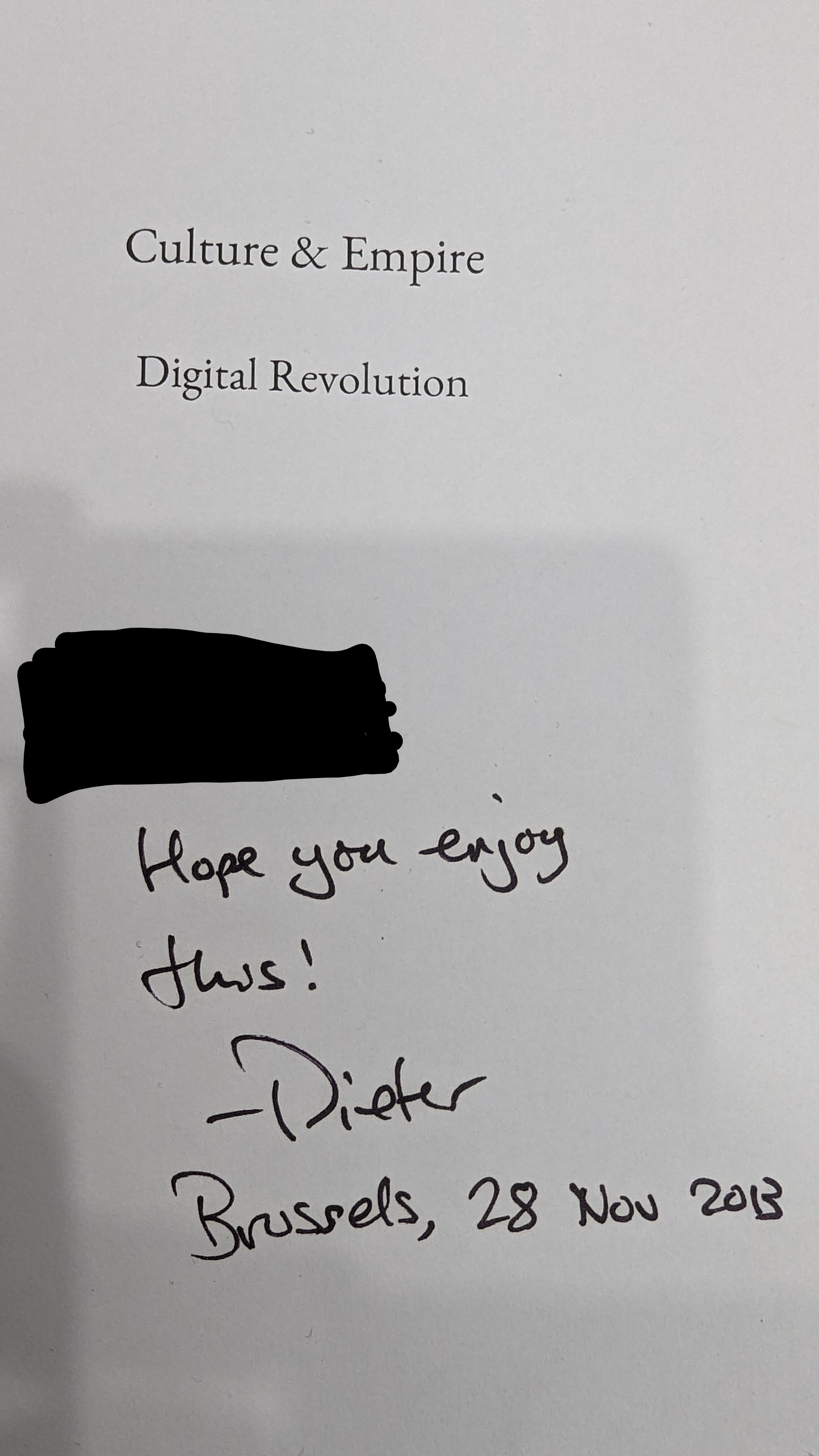I haven’t been parsing the input string character by character and instead have been parsing into native data structures. It makes the code more verbose but it’s how I want to do it. Unfortunately it does mean most of the time coming up with a solution is structuring the data so I’m hoping I come up with a faster way after a few days.
- 3 Posts
- 39 Comments

 1·1 year ago
1·1 year agoAs an alternative could he compile your program?

 1·1 year ago
1·1 year agoI would be interested to hear if you get far down that road. It sounds infinitely more difficult than running code and timing it.
Are you able to expand what problem lead you to this question (out of curiosity)?
I was trying so hard to avoid doing this and landed on a pretty nice solution (for me). It’s funny sering everyone’s approach especially when you have no problem running through that barrier that I didn’t want to 😆

 1·1 year ago
1·1 year ago2oneight- if you replace from left to right you get21ightor21. This doesn’t work for part 2 as the answer should br28.

 1·1 year ago
1·1 year agoI did this exact thing and hit the point where it didn’t work. I appreciated that the problem broke my code because it made me arrive at a better solution.

 4·1 year ago
4·1 year agoIm theory you could try counting CPU cycles or something analogous, or algorithmic complexity as the other commenter mentioned. You could also try to measure it in comparison to different code.
Outside of that, and in any practical sense, no you can’t. Performance measurements are dependent on the machine as much as the software.
If a car is hardware, and the driver is software, how would you measure the performance of the driver in the different cars? The only way I can think of is if you had 2 different drivers and could compare their times in both cars. If driver 1 is 2x as fast in car 1, and 2x as fast in car 2, you could say driver 1 has a score 2x higher than driver 2.

 5·1 year ago
5·1 year agoI’m not really sure how to interpret your comment but I’ll try my best. The edge case that causes some solutions to fail does not have any definition on how to handle it on the problem page. In other words, it does not state anywhere whether the correct interpretation of
1threeightis meant to be18or13. If your solution replaces the words to numbers from left to right you end up with13as the value but it’s meant to be18.The example answers don’t cover this but you will realise something is wrong if you run it against your full problem. Community has been very helpful on providing pointers.
My solutin in Elixir for both part 1 and part 2 is below. It does use regex and with that there are many different ways to accomplish the goal. I’m no regex master so I made it as simple as possible and relied on the language a bit more. I’m sure there are cooler solutions with no regex too, this is just what I settled on:
https://pastebin.com/u1SYJ4tY
defmodule AdventOfCode.Day01 do def part1(args) do number_regex = ~r/([0-9])/ args |> String.split(~r/\n/, trim: true) |> Enum.map(&first_and_last_number(&1, number_regex)) |> Enum.map(&number_list_to_integer/1) |> Enum.sum() end def part2(args) do number_regex = ~r/(?=(one|two|three|four|five|six|seven|eight|nine|[0-9]))/ args |> String.split(~r/\n/, trim: true) |> Enum.map(&first_and_last_number(&1, number_regex)) |> Enum.map(fn number -> Enum.map(number, &replace_word_with_number/1) end) |> Enum.map(&number_list_to_integer/1) |> Enum.sum() end defp first_and_last_number(string, regex) do matches = Regex.scan(regex, string) [_, first] = List.first(matches) [_, last] = List.last(matches) [first, last] end defp number_list_to_integer(list) do list |> List.to_string() |> String.to_integer() end defp replace_word_with_number(string) do numbers = ["one", "two", "three", "four", "five", "six", "seven", "eight", "nine"] String.replace(string, numbers, fn x -> (Enum.find_index(numbers, &(&1 == x)) + 1) |> Integer.to_string() end) end end

 1·1 year ago
1·1 year agoI just added this to my test case and when it passed the solution also passed:
assert part2("12oneightfve") === 18

 2·1 year ago
2·1 year agoThe problem is the example is actually
eightwothreewhich comes out as83so if you replace from start to finish the example passes but the solution is incorrect.

 5·1 year ago
5·1 year agoIt’s great! I’ve had community members point me in the right direction after already “solving” it incorrectly. It really makes you think about it. You have to expand your test cases and really come up with a better solution.
Not to say it isn’t difficult especially if you expect the problem to be described perfectly accurately.

 24·1 year ago
24·1 year agoOn new installs it does force you. I had to do it today (Windows 10). There are workaround such as attempting to log into a banned account, or other weird hacks involving disconnecting the internet and know the right combinations of hidden menus to navigate.

 3·1 year ago
3·1 year agoI would have but I don’t want to tie my Lemmy account to my actual identity :/

 2·1 year ago
2·1 year agoIt’s great to see the attempt and also an example of what the C4 guidelines are made to avoid.
Notice how many comments are little nitpicks about this and that. Completely stalling the commit and getting further away from the original point of C4 which is to reduce contributor friction and avoid these kind of endless discussions on PRs.
I don’t want to be too critical because some of that is a clear lack of understanding of the motivations of C4 which is explained more thoroughly in Pieter’s blog posts. You don’t want to adopt a contributor guidelines that you don’t understand of course.
IMO it’s better just to implement it as-is and start using it in practice rather than bikeshedding.

 2·1 year ago
2·1 year agoI’m not. I don’t plan to speed run it. It’s just a fun activity and part of that fun is just figuring out as I go along.

 2·1 year ago
2·1 year agoThere’s a number of them as the idea grows. See also the C4 process RFC

 5·1 year ago
5·1 year agoYes that’s right. I was only just transitioning into adulthood and Pieter mentored me and profoundly changed how I view many things. It wasn’t just zeromq but that was the main thing. I still keep his books at hand on my bookshelf. His death impacted me greatly.


 10·1 year ago
10·1 year agoYes it is. The code is in Bitcoin Core so there’s a non-zero chance you win at life if you want to try.



I’m still working on my part 1 😭 string parsing makes me feel so stupid haha. But I’m adamant on coming up with a “nice” solution even if the number of lines aren’t minimal. I’ve got something quite nice at the moment and I anticipate coming in under 100 lines (including whitespace, comments, and formatting).